Behind each of those songs are the figures of two artists who have devoted their whole lives to the national culture: Mr. Trinh Ngoc Thong (born in 1943) and Ms. Mieu Thi Nguyet (born in 1942). They are not only long-time local Soong Co singers, but also silent “soul keepers” of an entire ethnic minority community.
A life attached to the Soong Co melody
The road leading to Mr. Trinh Ngoc Thong's house winds through the gentle hillsides, stretching under the lush green forest canopy of Nam Hoa commune, Dong Hy district. Walking along the small path, interspersed with patches of wild grass and pure white bushes of wild flowers, the fresh and cool air seems to permeate the soul. Thatched roofs appear behind the trees, the afternoon sunlight peeks through the leaves, making the scene like a peaceful picture full of countryside.
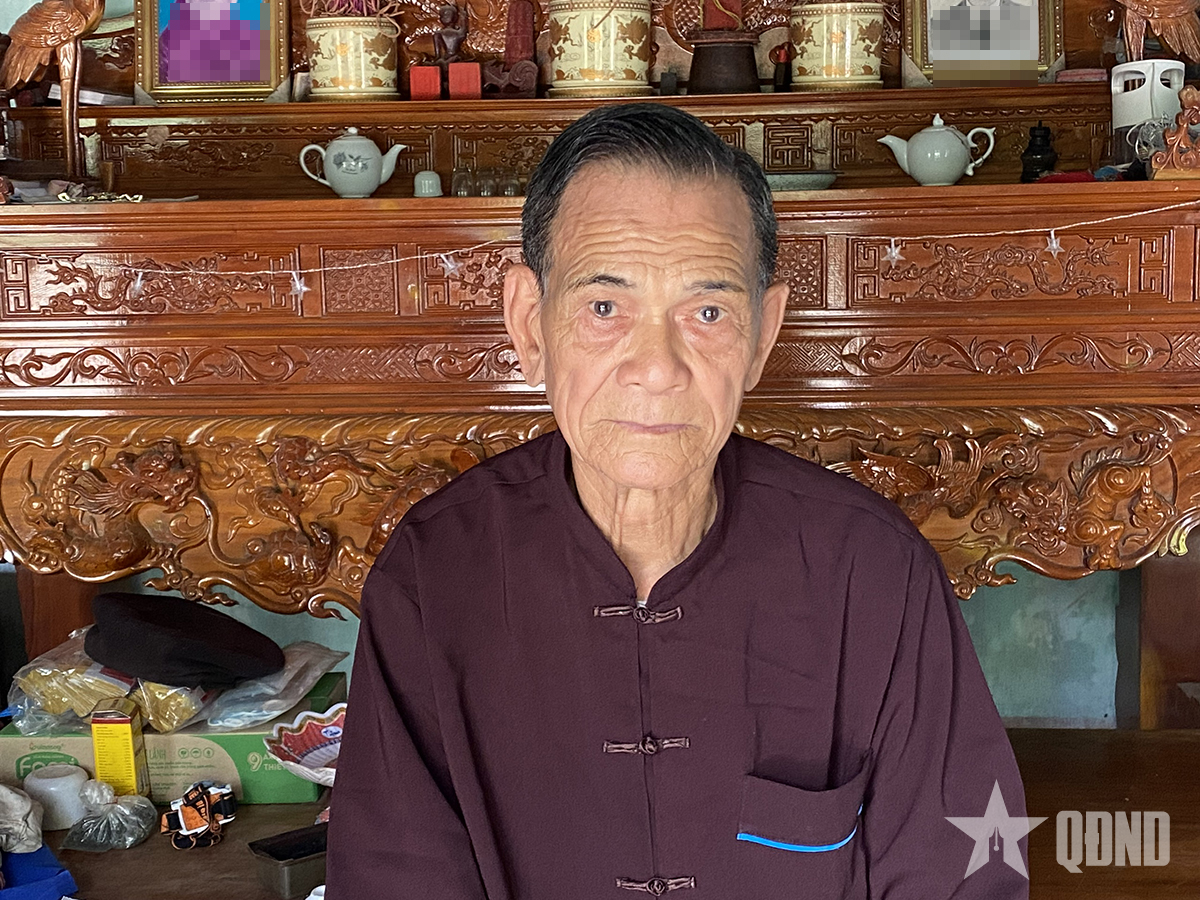 |
Even though he is in his old age, Mr. Trinh Ngoc Thong is still passionate about each Soong Co tune as a way to preserve culture in the midst of modern life. |
From here, the singing of Soong Co by artist Trinh Ngoc Thong has for many years still echoed gently among the mountains and forests:
“
”
(Pandemic:
”
Mr. Thong's house is not big, located peacefully on the hillside, this is the place that preserves not only the songs but also the memories and the soul of a San Diu community that loves traditional culture. In that small three-room house, Mr. Thong introduced us to each book that preserves Soong Co songs that have been passed down from our ancestors, compiled and collected by himself.
He said that the Soong Co singing of the San Diu people is similar to the Quan Ho singing of the Bac Ninh people, both starting with greetings and invitations to chew betel. Currently, there are new lyrics composed specifically to praise the Party, Uncle Ho and the working life of the people. He has painstakingly collected more than 5,000 songs written in ancient Chinese characters, carefully translated, rhymed, composed lyrics and meticulously recorded in a notebook to pass on to future generations.
According to Mr. Thong, the characteristic of Soong Co is the free-flowing melody, not following a fixed musical pattern like some folk songs of the Tay or Nung ethnic groups. “That is why Soong Co cannot be arranged or accompanied by music like other genres. Only a simple, sincere voice can preserve the soul of this ancient melody,” he shared.
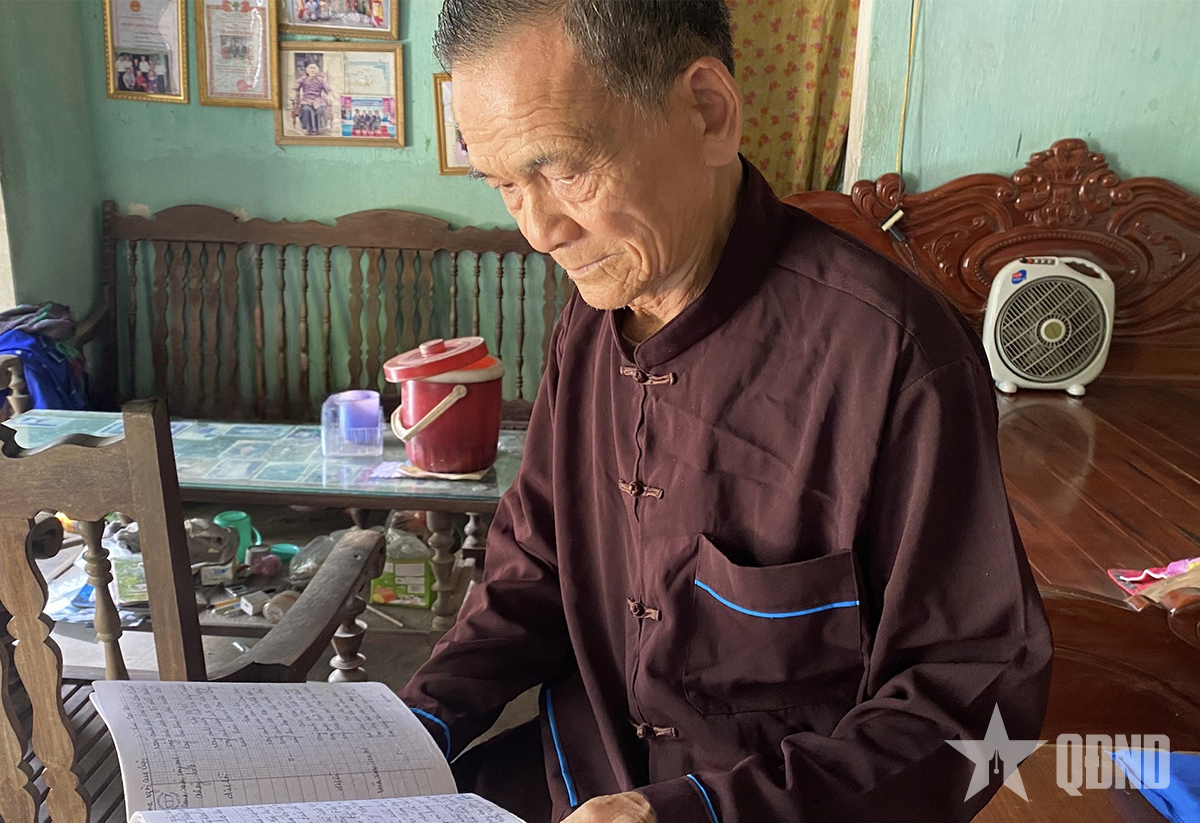 |
| All of the more than 5,000 songs written in ancient Chinese characters were painstakingly collected and carefully translated by Mr. Thong. |
In his heartfelt sharing, Mr. Thong recalled the early days when the Soong Co Club was still widespread throughout the five hamlets, and the singing resounded throughout the countryside. In 2012, the Nam Hoa Commune Soong Co Club was officially launched, with Mr. Thong taking on the role of Vice Chairman and Ms. Mieu Thi Nguyet holding the position of Chairman. In 2016, when Ms. Nguyet retired, he continued to take on the position of Chairman, leading and maintaining the cultural activities of the hamlet.
However, over time, the commune club dissolved, leaving behind small groups operating separately in each hamlet. Currently, he continues to hold the role of Chairman of the Na Quan Hamlet Soong Co Club. He said that the number of artists who can still sing Soong Co in the hamlet is only about 20 people, most of whom are in their 70s and 80s. “In the past, I followed my older brothers and sisters to learn singing from the age of 14 or 15. By the age of 18, I could sing in many places. Now, not many young people are interested anymore, those who know how to sing are working far away, the rest are... old like me,” Mr. Thong shared sadly.
Difficulties pile up, but love never fades
If Mr. Thong is the solid pillar of the current club, Ms. Mieu Thi Nguyet is the one who laid the first foundation for all Soong Co singing activities in this land. “At first, we had to go and mobilize people one by one. We only invited 25 people, then it increased to 40. Mostly people in the village and neighboring villages,” Ms. Nguyet recalled. Singing and dancing classes for children were also held, but because of making a living and modern life, the children gradually moved away from the ancient melodies.
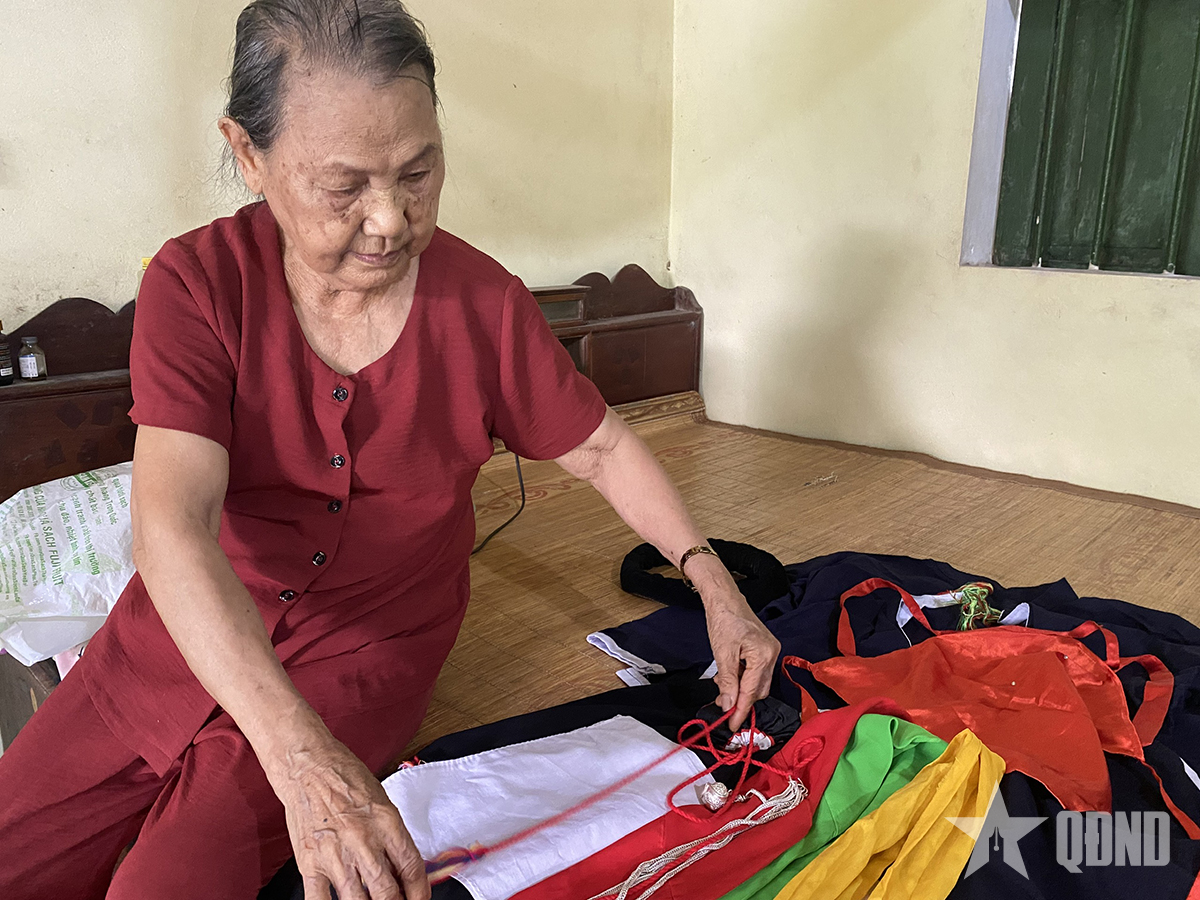 |
| With her sweet voice, Ms. Mieu Thi Nguyet has become a "silent flame" that preserves Soong Co in the small village. |
Coming from a family with a tradition of folk singing, when she was young, her parents taught her to sing songs about the seasons, greetings, weddings, and longevity wishes. From then on, she carried the melodies of her homeland through her youth, the war years, and even her time as Chairwoman of the People's Committee of Nam Hoa Commune from 1968 to 1970.
An important milestone in her journey to preserve ethnic culture came in May 2010, when she represented the National Congress of Ethnic Minorities in Vietnam held in Hanoi . Here, she had the opportunity to meet hundreds of delegates from all over the country. Through intimate conversations, she suddenly realized that what people remember most about each ethnic group is the songs in their mother tongue, simple, profound and imbued with identity. It was that inspiration that urged her, as soon as she returned to her hometown, to start collecting and copying Soong Co songs as a way to preserve the cultural soul of her people for future generations.
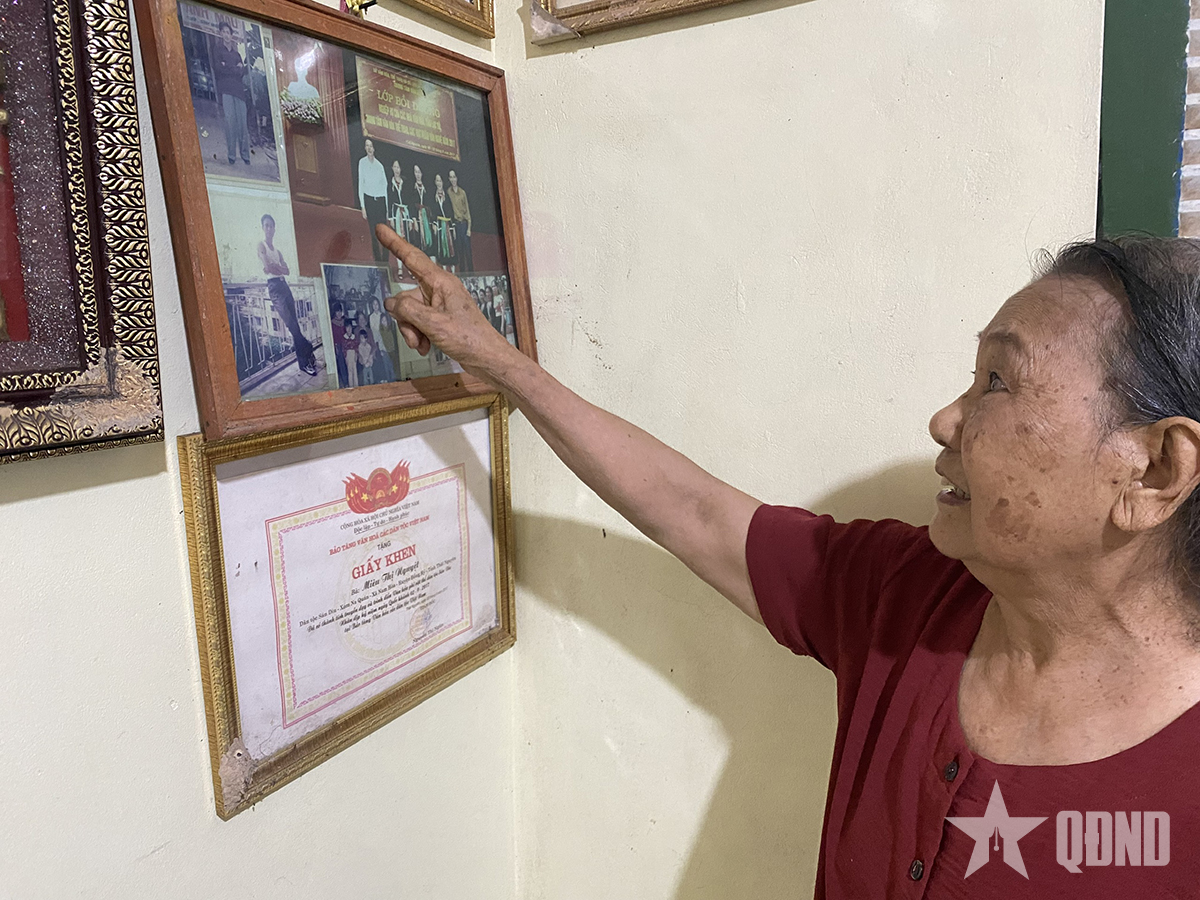 |
| Through each photo, Ms. Nguyet recounts the journey of keeping the Soong Co fire of the Na Quan Commune Club with pride and emotion. |
She sighed and confided: “Listening is fine, but singing makes the children feel embarrassed and don’t want to learn. Some don’t even know their own language.” But despite this, she has never given up her belief in cultural values: “If anyone needs me, I’m still willing to teach them. Before, there were nearly ten children who came to my house to learn singing,” she said.
For Mr. Thong and Ms. Nguyet, singing Soong Co has never been about making money or fame. Although they have received certificates of merit or been invited to perform in many provinces and cities, they are still silent artists, saving money on traditional costumes, makeup, etc. For old artists like Mr. Thong and Ms. Nguyet, this is not a small expense. "Almost all activities are voluntary, those who love it contribute a little money for travel and organization," Mr. Thong shared.
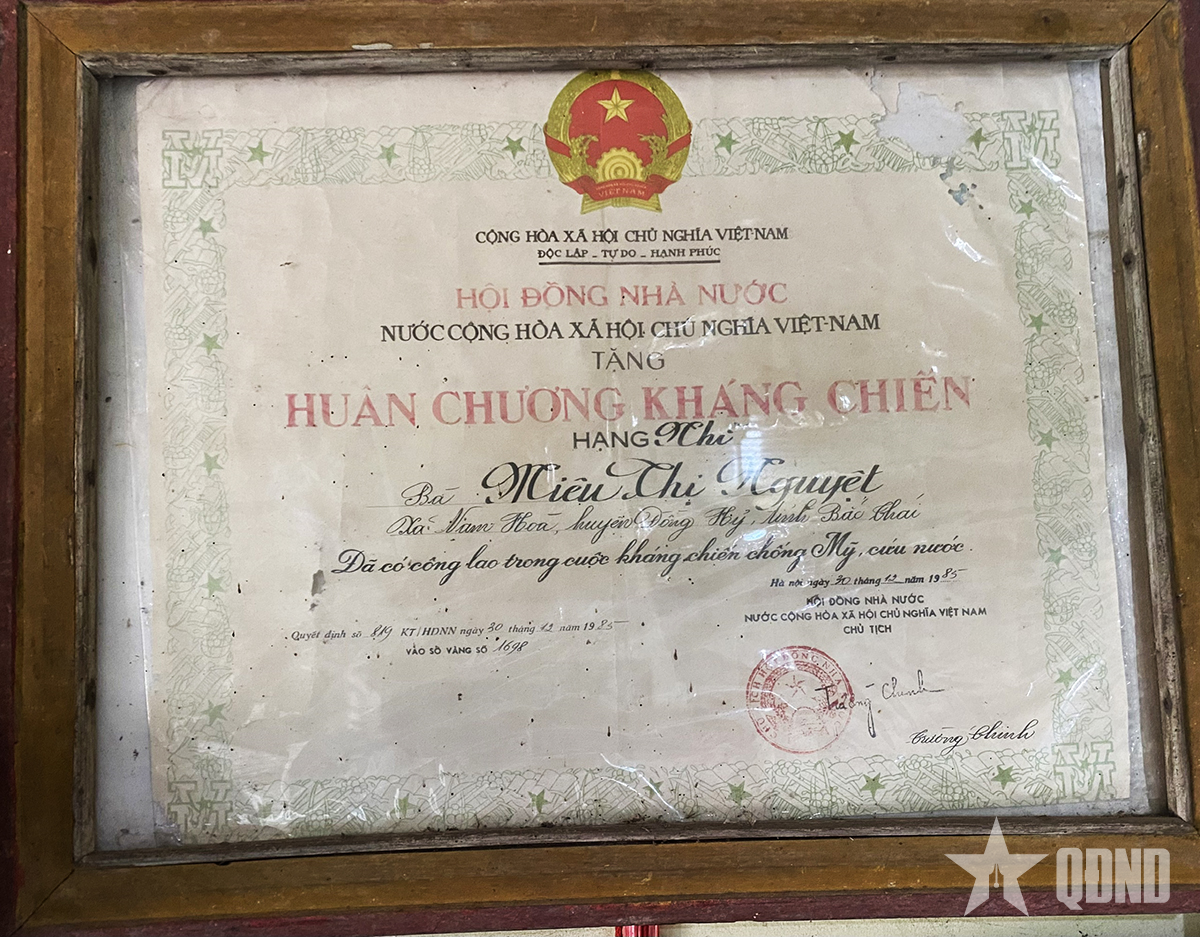 |
| Not only is she a keeper of San Diu ethnic culture, Ms. Mieu Thi Nguyet is also a person who made many contributions to the resistance war against America to save the country. |
The biggest problem, as both artists emphasized, is succession. “Many children like to sing, but after finishing school, they go to work far away, get married, and are busy studying. The number of people who can sing is decreasing, and we are... old,” Mr. Thong said, his voice dropping. Not only worried about the present, the two artists are also worried about the future of Soong Co. “Without specific preservation plans, sooner or later this tune will disappear. We will try our best to continue it as long as possible, but eventually it will no longer exist,” he said, his eyes looking into the distance.
Mr. Nguyen Huu Dai (Head of Na Quan hamlet, Nam Hoa commune, Dong Hy district, Thai Nguyen province) said: “Mr. Trinh Ngoc Thong and Ms. Mieu Thi Nguyet are very passionate about ethnic culture, especially preserving Soong Co singing culture, an extremely valuable work, because if there are no successors, the next generation will easily be lost, losing the San Diu cultural roots. The people of Na Quan hamlet are mainly San Diu people, accounting for more than 90%, so we always want to preserve the ethnic identity. The local government also tries to create conditions and support cultural exchange activities to be able to maintain and develop this traditional culture in the long term”.
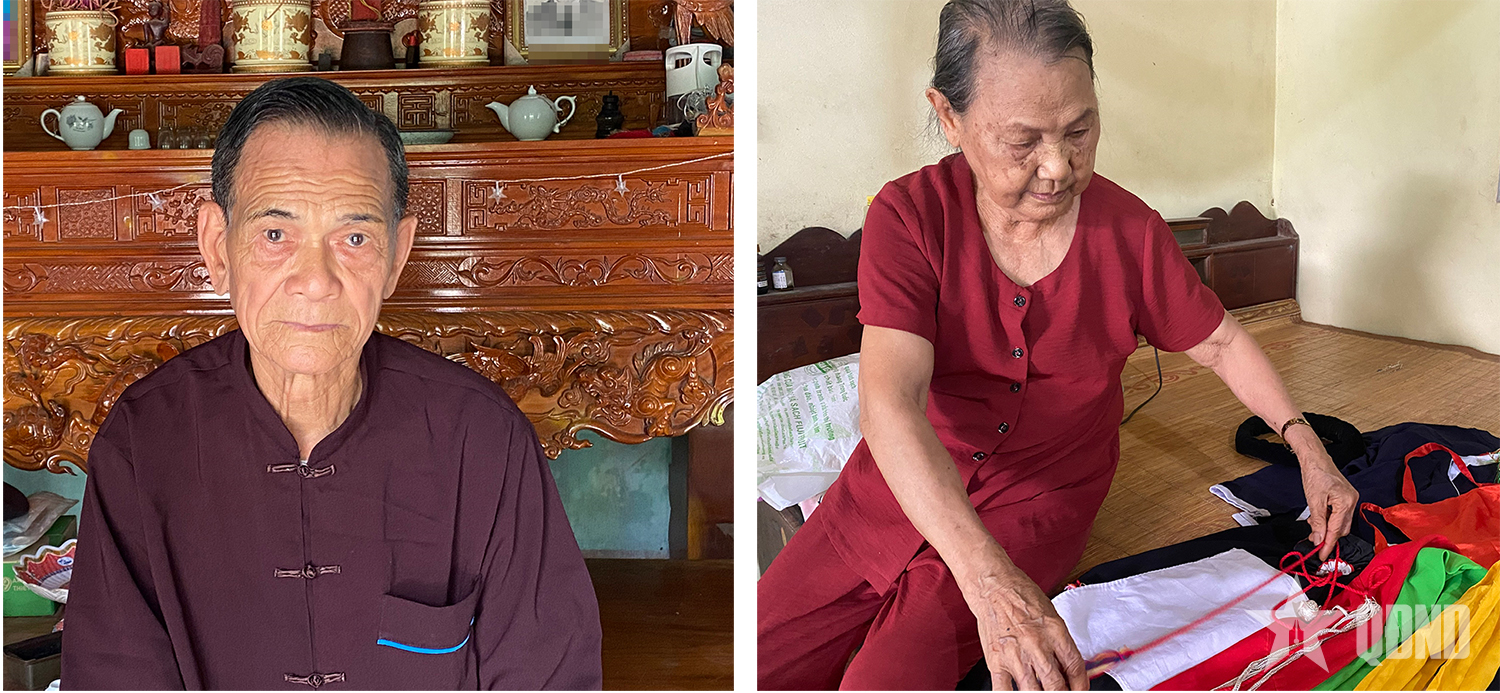 |
| Mr. Trinh Ngoc Thong and Ms. Mieu Thi Nguyet - Artists who preserve the soul of Soong Co San Diu melody in Nam Hoa commune, Dong Hy district, Thai Nguyen province. |
That saying is not only the voice of the Na Quan hamlet chief but also of many other artisans in the San Diu ethnic community, who are still silently keeping the flame of ethnic culture alive in each song, each teaching session amidst the hustle and bustle of life. Soong Co is not only a song, a voice but also the soul of the nation and in the small house on the hillside, that flame has never been extinguished, thanks to people like Mr. Thong and Mrs. Nguyet who have devoted their whole lives to preserving a part of the soul of their homeland.
Article and photos: BAO NGOC
Source: https://www.qdnd.vn/phong-su-dieu-tra/cuoc-thi-nhung-tam-guong-binh-di-ma-cao-quy-lan-thu-16/nhung-nghe-nhan-giu-hon-lan-dieu-soong-co-san-diu-829835


![[Photo] President Luong Cuong receives Lao Vice President Pany Yathotou](https://vphoto.vietnam.vn/thumb/1200x675/vietnam/resource/IMAGE/2025/5/25/958c0c66375f48269e277c8e1e7f1545)


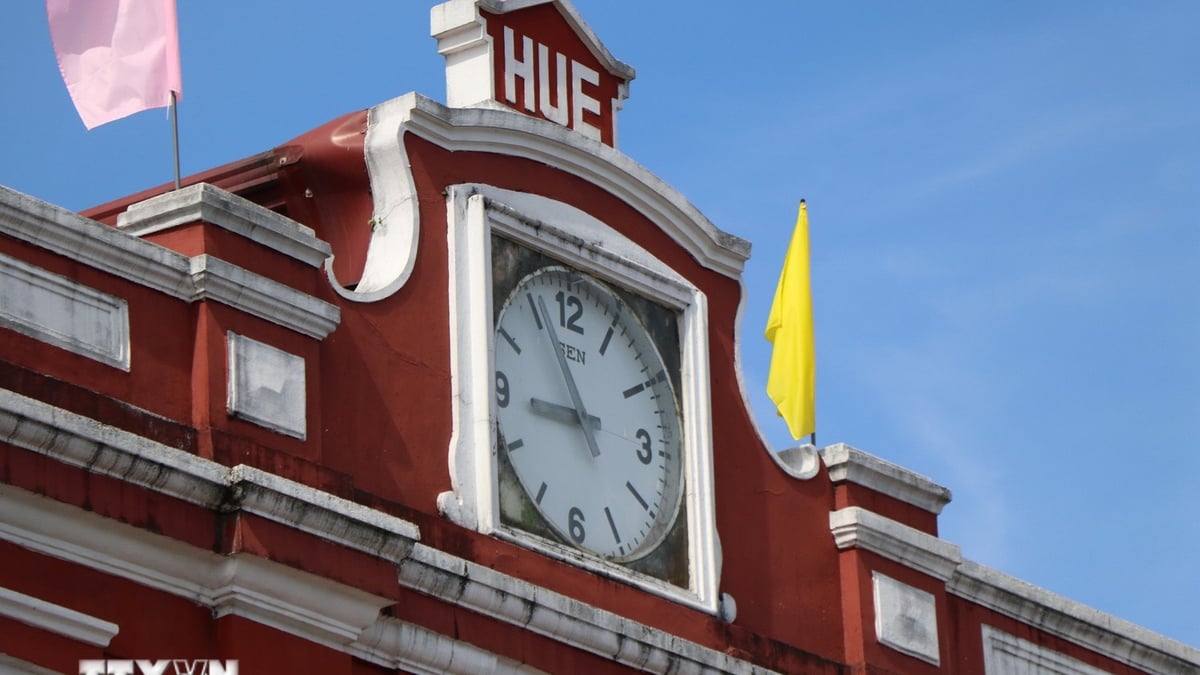
![[Photo] Festival of accompanying young workers in 2025](https://vphoto.vietnam.vn/thumb/1200x675/vietnam/resource/IMAGE/2025/5/25/7bae0f5204ca48ae833ab14d7290dbc3)
![[Photo] The coffin of former President Tran Duc Luong arrives in Quang Ngai](https://vphoto.vietnam.vn/thumb/1200x675/vietnam/resource/IMAGE/2025/5/25/1f1aca0d92ab47deae07934e749b35e6)
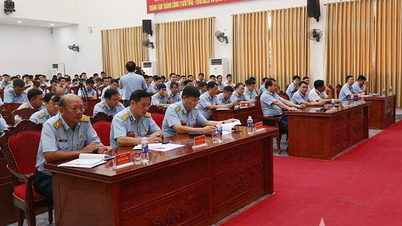

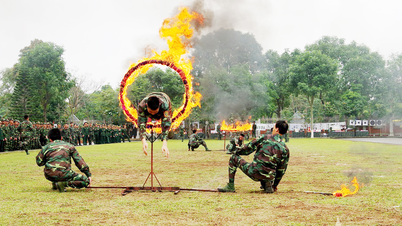
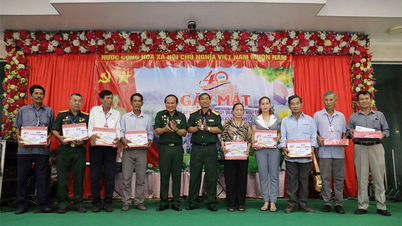
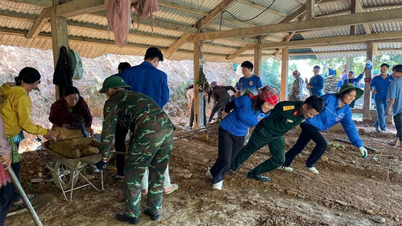






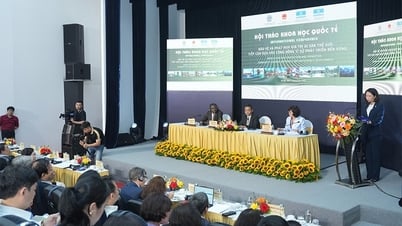

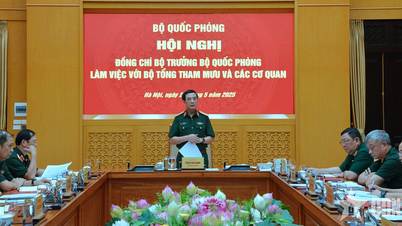
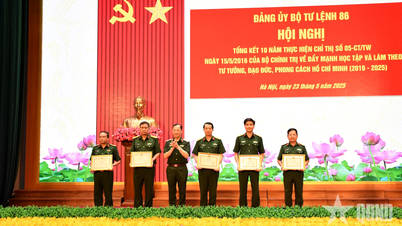
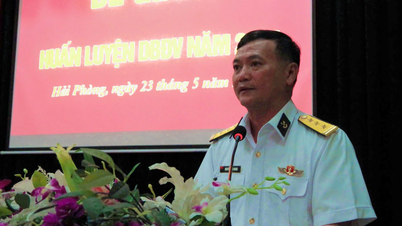




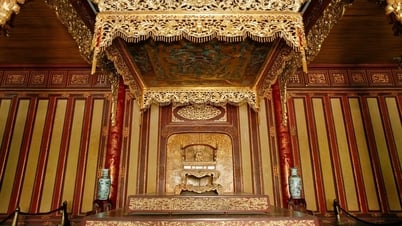





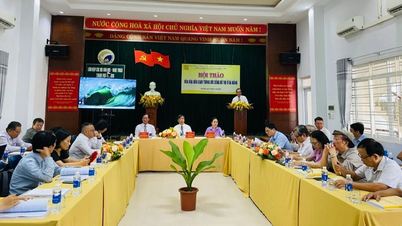

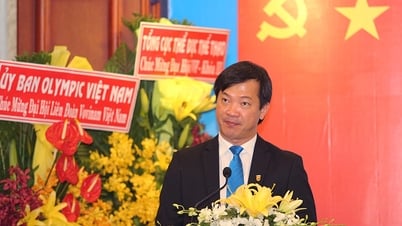







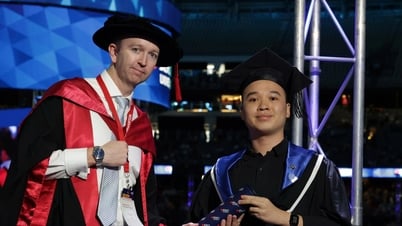












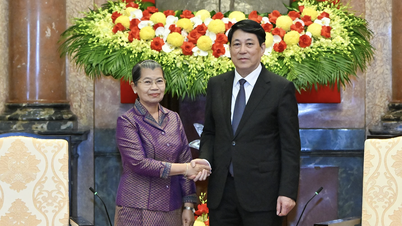

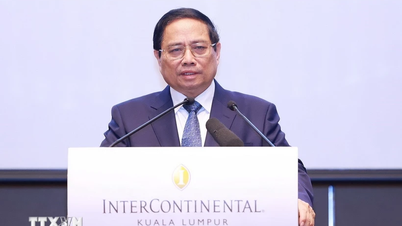














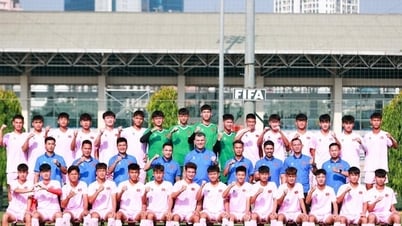







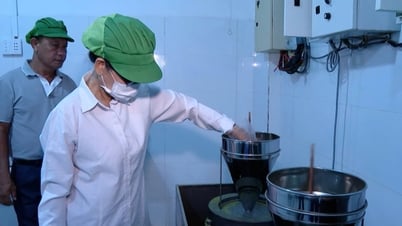




Comment (0)